Greece finds 18 bodies as wildfires spread in new Europe heatwave
France, Italy and Portugal issue heat alerts as temperatures to hit 42C across much of southern Europe
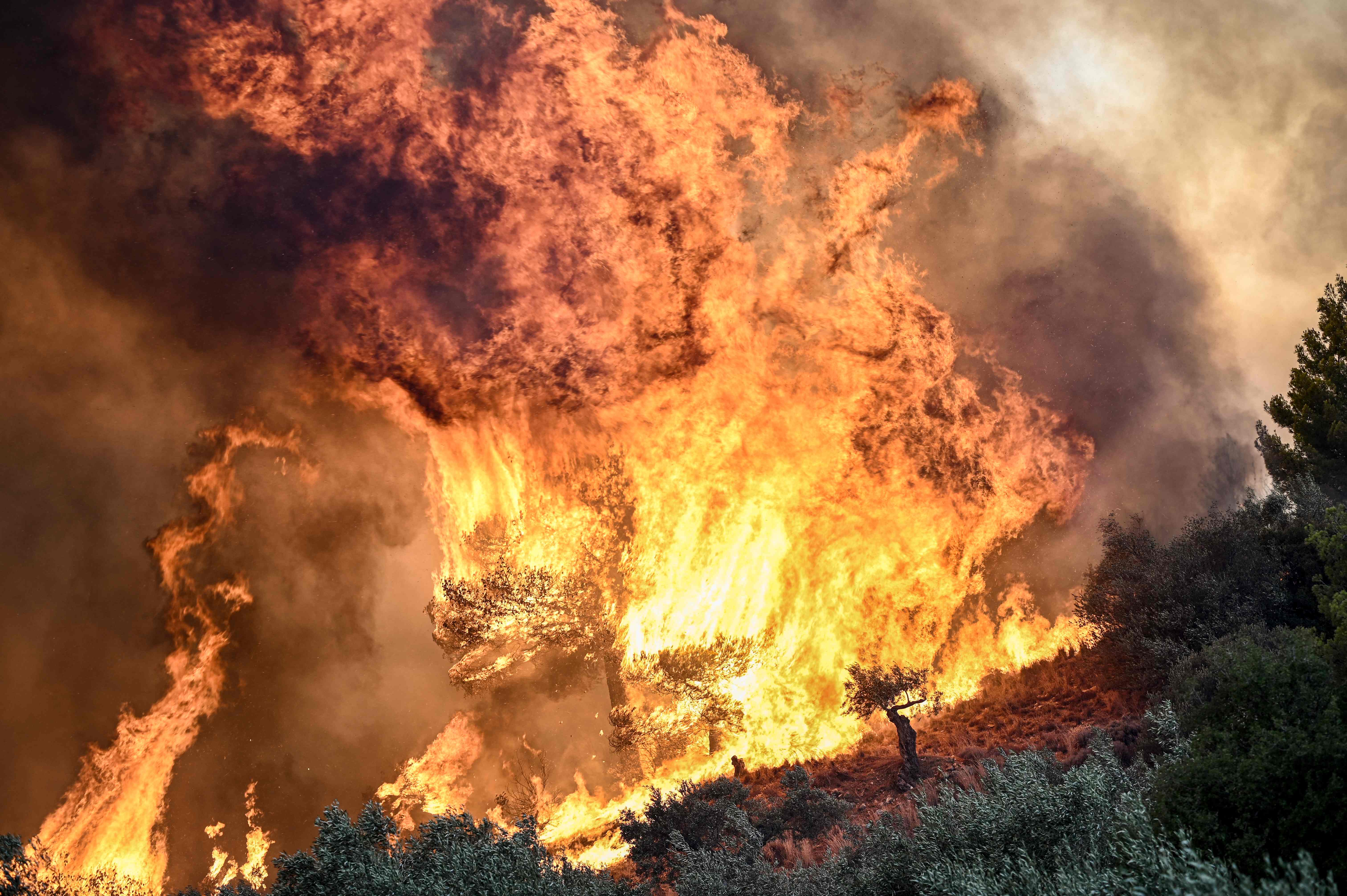
The bodies of 18 people have been found in an area of Greece hit by wildfires, as firefighters tackle blazes across southern Europe in the grip of another heatwave.
The dead are believed to have been migrants who had crossed the border from Turkey into the Avantas area of northeastern Greece, near the city of Alexandroupolis.
Hot, dry and windy conditions have led to wildfires across the country as well as Spain, Italy and Portugal.
Temperatures in many parts of southern Europe are expected to reach or exceed 40C. Italy and France declared heat alerts in a number of areas.
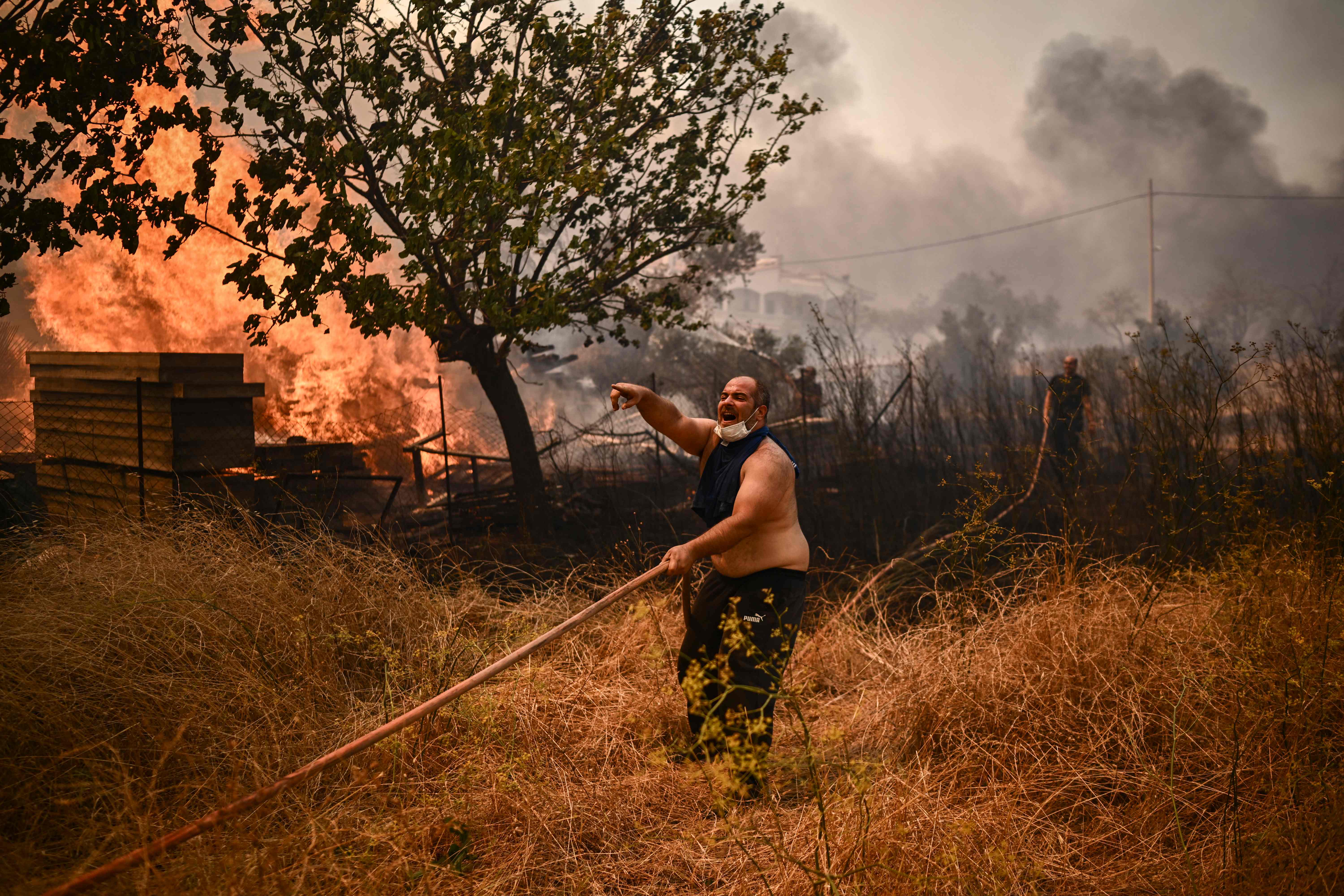
Another major blaze has been burning across Tenerife in Spain’s Canary Islands for a week, although no injuries or damage to homes have so far been reported.
Alexandroupolis is near the border with Turkey, along a route often taken by people fleeing poverty and conflict and seeking to enter the European Union.
“Given that there have been no reports of a missing person or missing residents from the surrounding areas, the possibility is being investigated that these are people who had entered the country illegally,” said fire department spokesman Ioannis Artopios.
Greek president Katerina Sakellaropoulou voiced deep sorrow at the deaths.
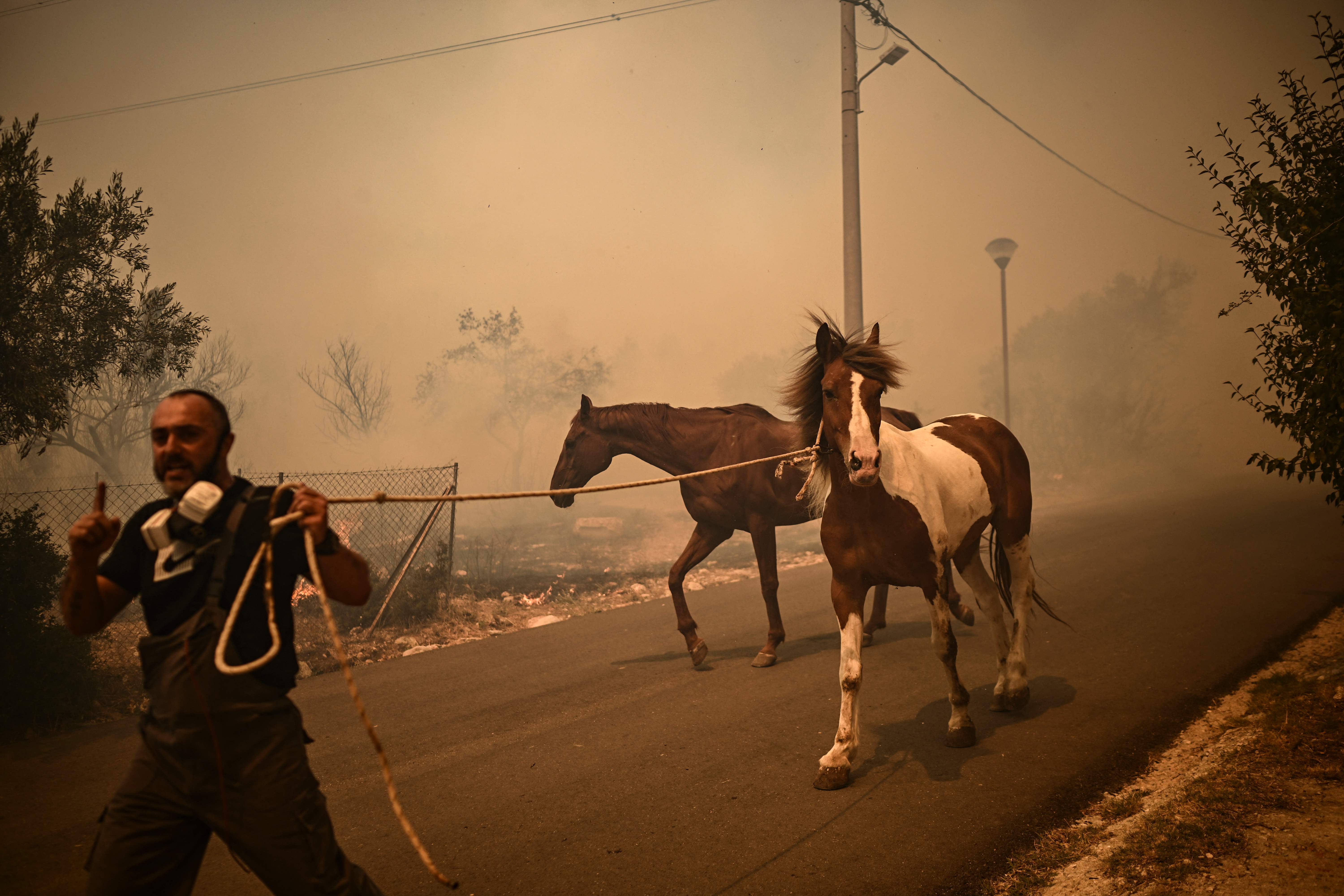
“We mourn their loss ... (and) the destruction of nature (and) we are saddened by our inability to avert it,” she said in a statement. “We must urgently take effective initiatives to ensure that this bleak reality does not become the new normality.”
Avantas, like many nearby villages and settlements, had been under evacuation orders, with push alerts in Greek and English sent to all mobile phones in the region.
A massive wall of flames raced through forests toward Alexandroupolis, prompting authorities to evacuate eight more villages and the city’s hospital as flames reddened the sky.
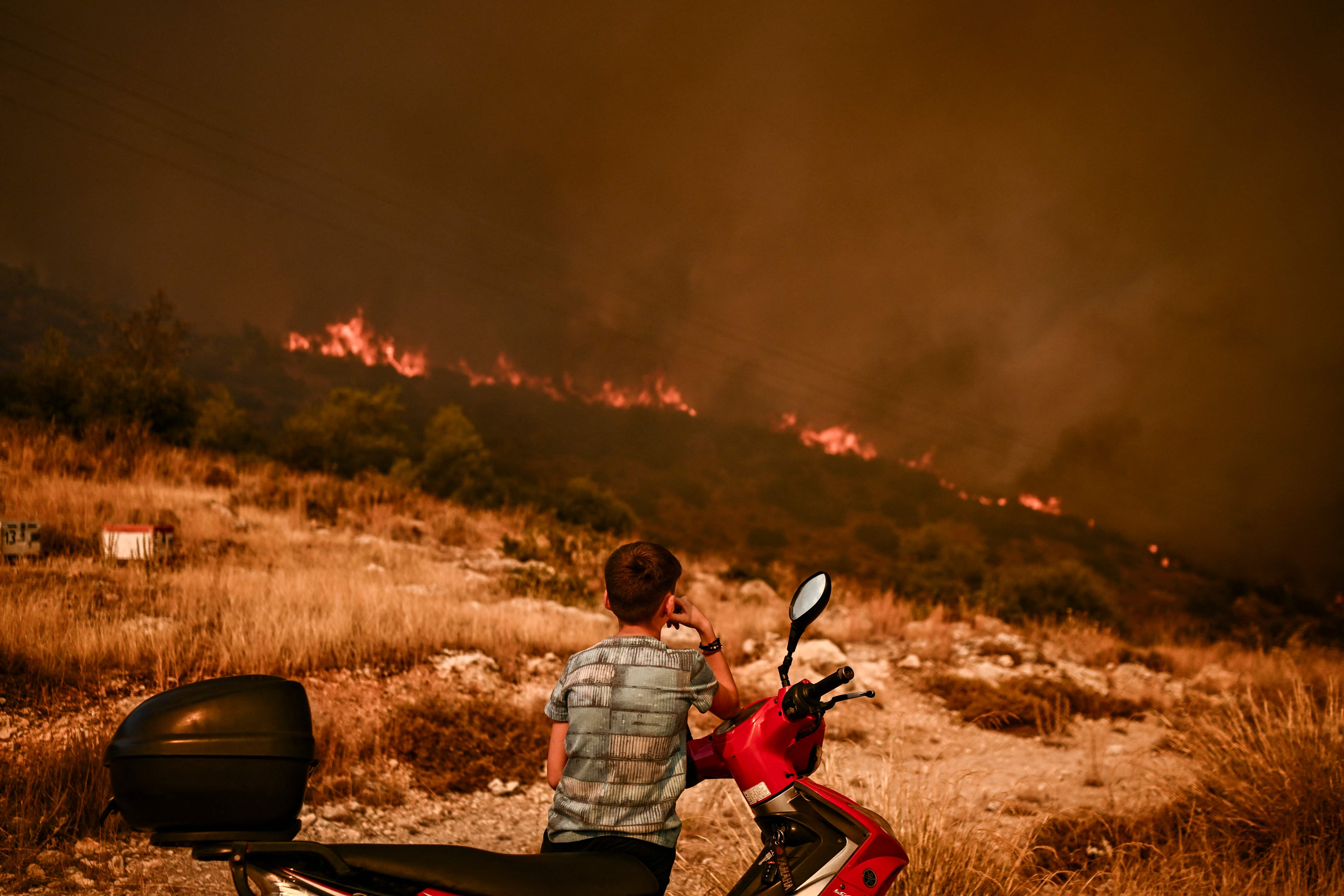
About 65 of the more than 100 patients in the hospital were transported to a ferry in the city’s port, while others were taken to other hospitals in northern Greece. The ferry later took 26 patients to the port town of Kavala, to be transferred to another hospital.
Elderly patients lay on mattresses strewn across the cafeteria floor, paramedics attended to others on stretchers and a woman held a man resting on a sofa, an IV drip attached to his hand.
“I’ve been working for 27 years, I’ve never seen anything like this,” said nurse Nikos Gioktsidis. “Stretchers everywhere, patients here, IV drips there ... it was like a war, like a bomb had exploded.”
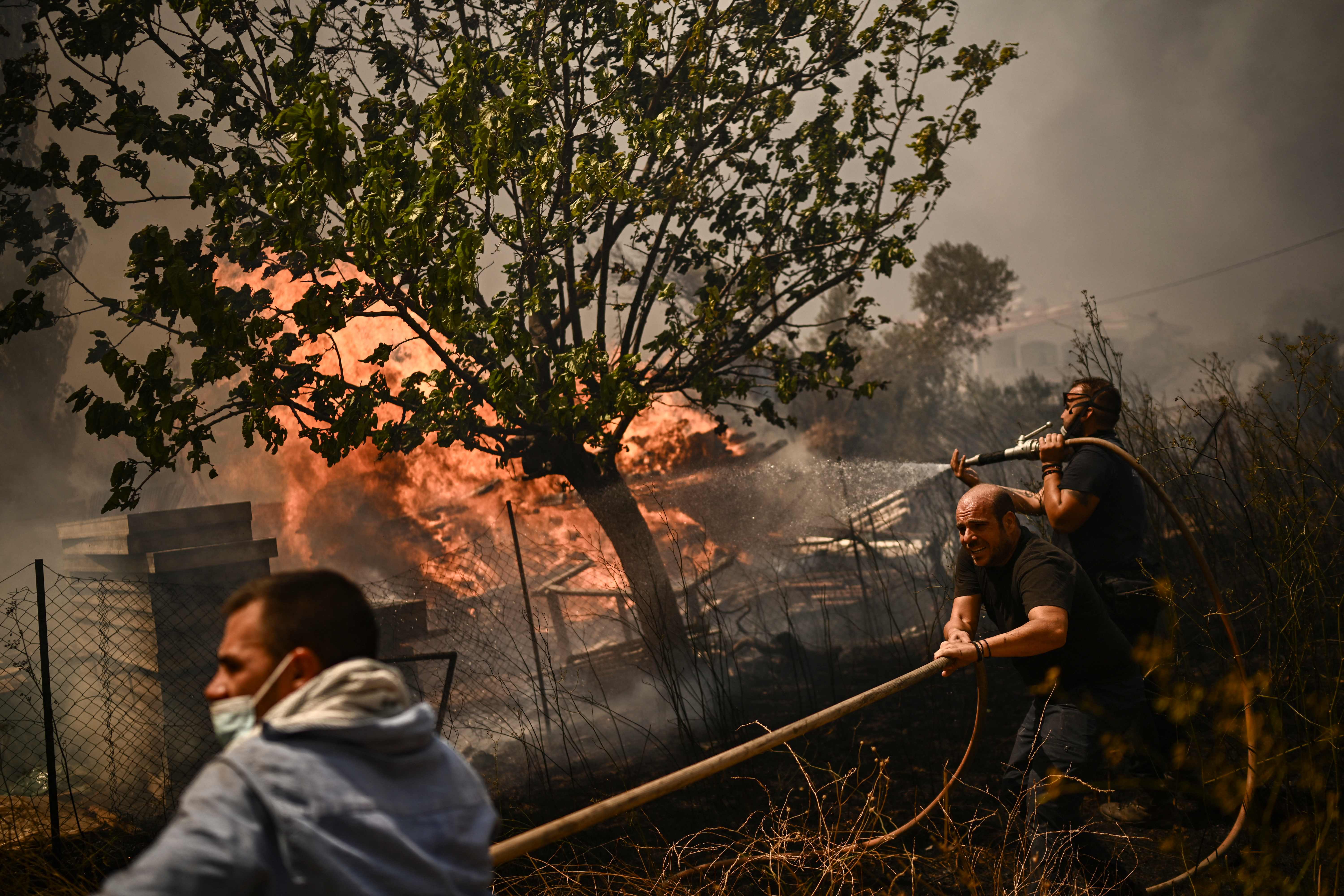
New fires broke out in several areas, including in woodland northwest of Athens and an industrial area on the capital’s western fringes.
Small explosions echoed from the industrial area of Aspropyrgos as flames reached warehouses and factories. Authorities shut a motorway and ordered the evacuation of nearby settlements.
With firefighting forces stretched to the limit, Greece appealed for help from the EU civil protection mechanism.
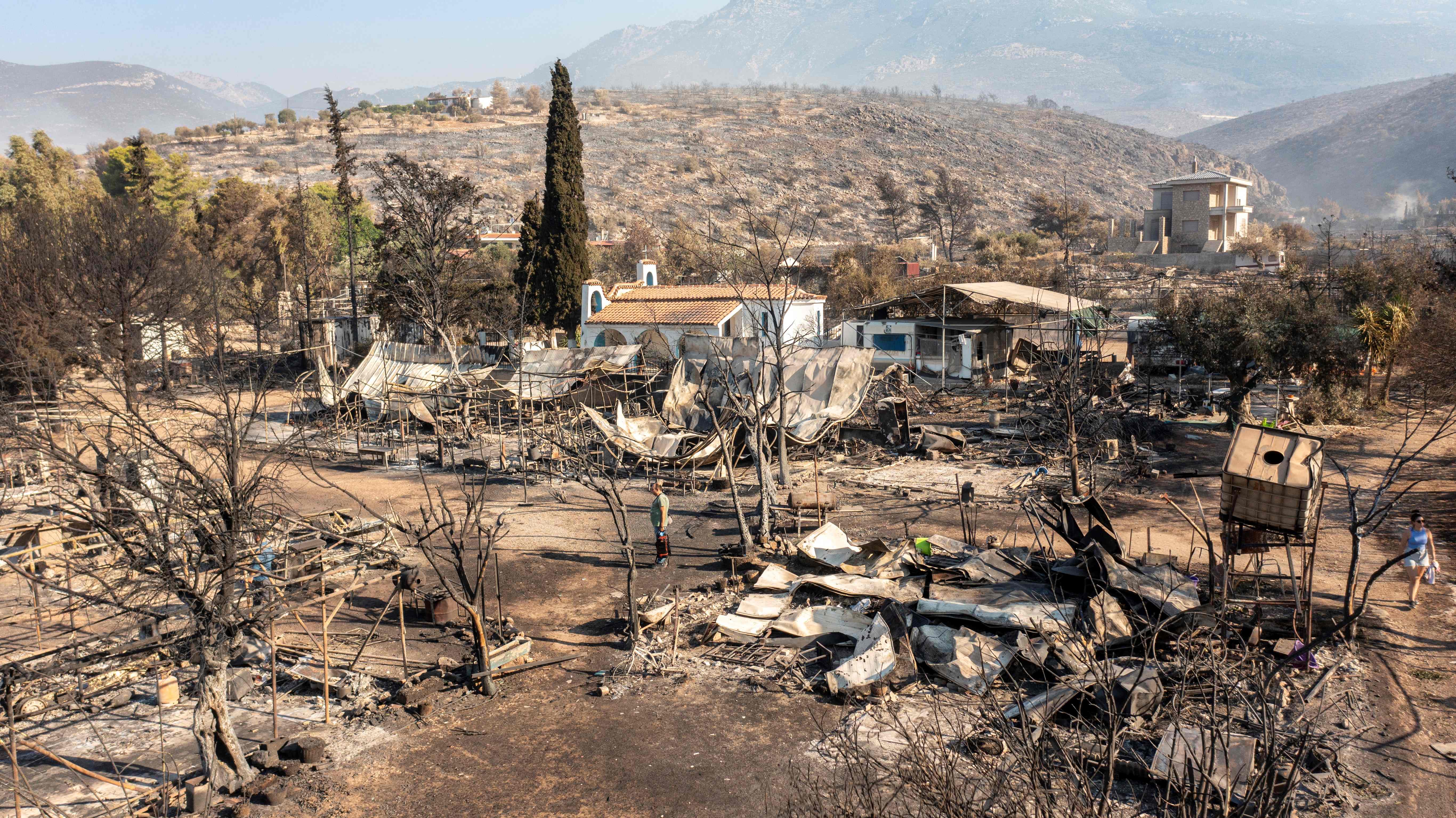
Five water-dropping planes from Croatia, Germany and Sweden, and a helicopter, 58 firefighters and nine water tanks from the Czech Republic flew to Greece on Tuesday, while 56 Romanian firefighters and two aircraft from Cyprus arrived Monday. French firefighters helped tackle a blaze on the island of Evia on Monday.
In Italy, authorities evacuated 700 people from homes and a campsite on the Tuscan island of Elba after a fire broke out late on Monday, while in Turkey authorities evacuated nine villages in northwestern Canakkale province.
Hot weather red alerts were issued in 16 of Italy’s 27 main cities on Tuesday, including Rome, Milan and Florence, with the number set to rise on Wednesday.

Grape-pickers in wine-producing regions of France have been advised to start work in the early hours of the morning to avoid sweltering. Temperatures are expected to peak at 42C in the Rhone valley over the next 48 hours.
In Portugal, authorities placed more than 120 municipalities in the north and central areas, as well as in some parts of the Algarve at maximum risk of wildfires due to the heat.
According to the Italian Society of Environmental Geology, more than 1,100 fires in Europe this summer have consumed about 1,100 square miles, well above an average of 724 fires a year recorded from 2006-2022. The fires have removed wooded areas capable of absorbing 2.5 million tons of carbon dioxide a year.
Reuters and Associated Press contributed to this report






Join our commenting forum
Join thought-provoking conversations, follow other Independent readers and see their replies
Comments